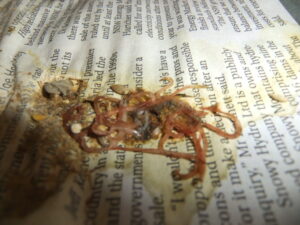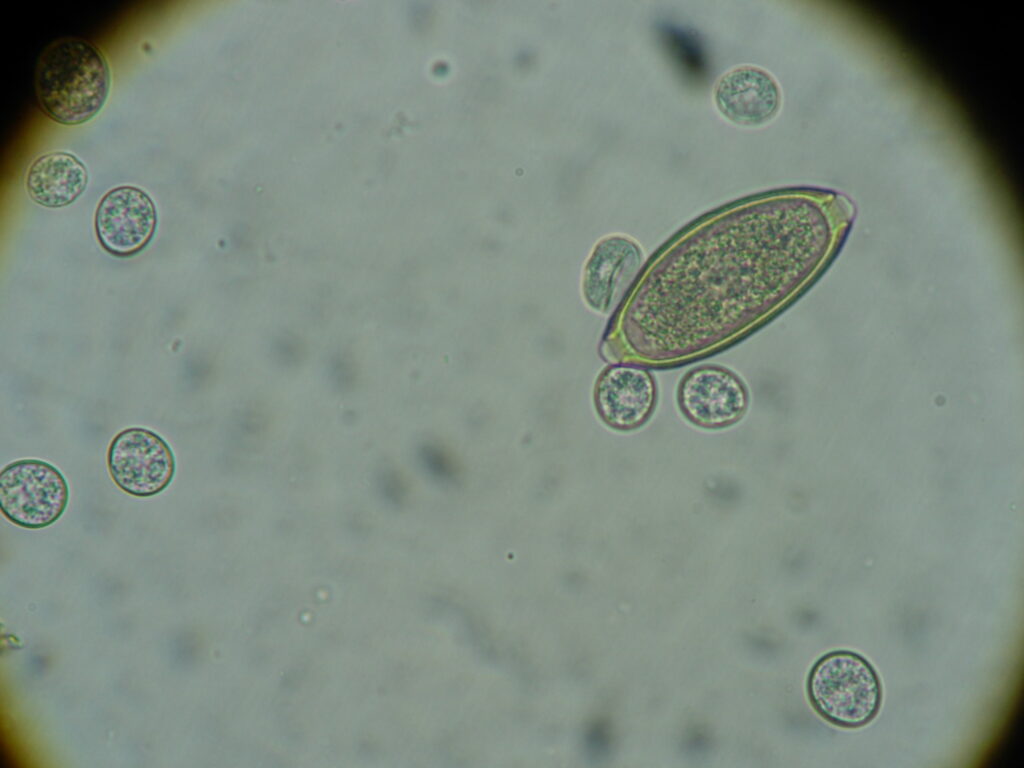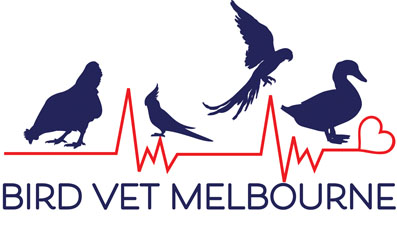Worms In Chickens

Treatment of Worms In Poultry
Chicken worms, chicken coccidia, and poultry mites and lice, are common and regularly seen. Round worms in chickens have a life cycle of about three weeks. Consequently from the time the egg is eaten by the bird, and the worm grows inside the chicken, and a new egg produced, is 21 days.
The source of the chicken worms is usually contamination of the birds food with chicken faeces. So hygiene and feeding ALL food off the ground is recommend by chicken vets. After an appropriate chicken de-wormer, that kills all the adult worms in the birds intestine, no further eggs are passed for at least 21 days. For this reason in severe poultry worm infections, the chicken vet recommends de-worming every 21 days. This is to stop the shedding of eggs into the environment.
We recommend a product “Bird-wormer” that is registered for egg laying hens. There is no withholding period and the eggs can be eaten while on the medication. The poultry vets do not routinely recommend Moxidectin as it has uncertain withholding periods, and precious eggs need to be discarded. We do have moxidectin if needed as it is an effective product for some Chicken worms.
Diagnosis of Worms In Chickens
The chicken veterinarian will take a few grams of stool and do a fecal flotation test. The worm eggs rise to the surface and can be viewed microscopically. Bird Vet Melbourne helped Edgar’s mission set up a microscope to do in house fecal flotations as the cost is about $50 per test.
Capillaria In Chickens
Capillaria is also called: Thread Worms, Hairworm Infection, Capillara, Small Roundworms Capillariasis is the name of the worm that causes capilariais – the disease caused by infection with Capillaria species which is an internal parasite. When chickens are mildly to moderately infected, they can show a variety of nonspecific signs from general poor health, diarrhoea, and eventually death. However during heavy infections, it starts to have a significant impact on their overall health. These birds will have a lower resistance against other infections and more severe symptoms, especially in younger poultry. Signs include thriftiness, slow growth, weight loss, emaciation, reduced egg production, and death
The worms live inside infected birds, where they feed on various parts of their body and lay their eggs. Their microscopic eggs get passed through into the chicken’s feces, contaminating the surrounding environment. The eggs are so microscopic, that you cannot see them with the naked eye. You need a microscope in order to identify their presence, hence why fecal tests are used as a great preventative tool. Other chickens in the flock will ingest the eggs when forging, eating, or drinking. Once ingested, the eggs hatch in the chicken and develop and feed on their crop, esophagus, small intestines, or ceca. Upon reaching adult age, the worms will then lay their eggs which gets passed through the chicken in their feces.

Chicken Worming Products
We keep a range of chicken medications to treat worms in chickens
Chicken Wormers that are Safe for egg layers with no egg withholding periods:
- “Bird Wormer” a Levamisole based product is safe and available over the counter without a prescription,
- We also keep Pipirazine based products as they are safe but less effective.
Chicken wormers not registered for egg layers:
- Moxivet – a moxidectin based product – one of the few products used to treat scaly leg mite in chickens.
- Fenbendazole – possibly the best chicken wormer – given over 3 to 5 days orally to each individual bird. The Melbourne chicken vets use this in cases of very high worm numbers.
- Levamisole and praqiquantal products that treat chicken worms and chicken tape worms.
